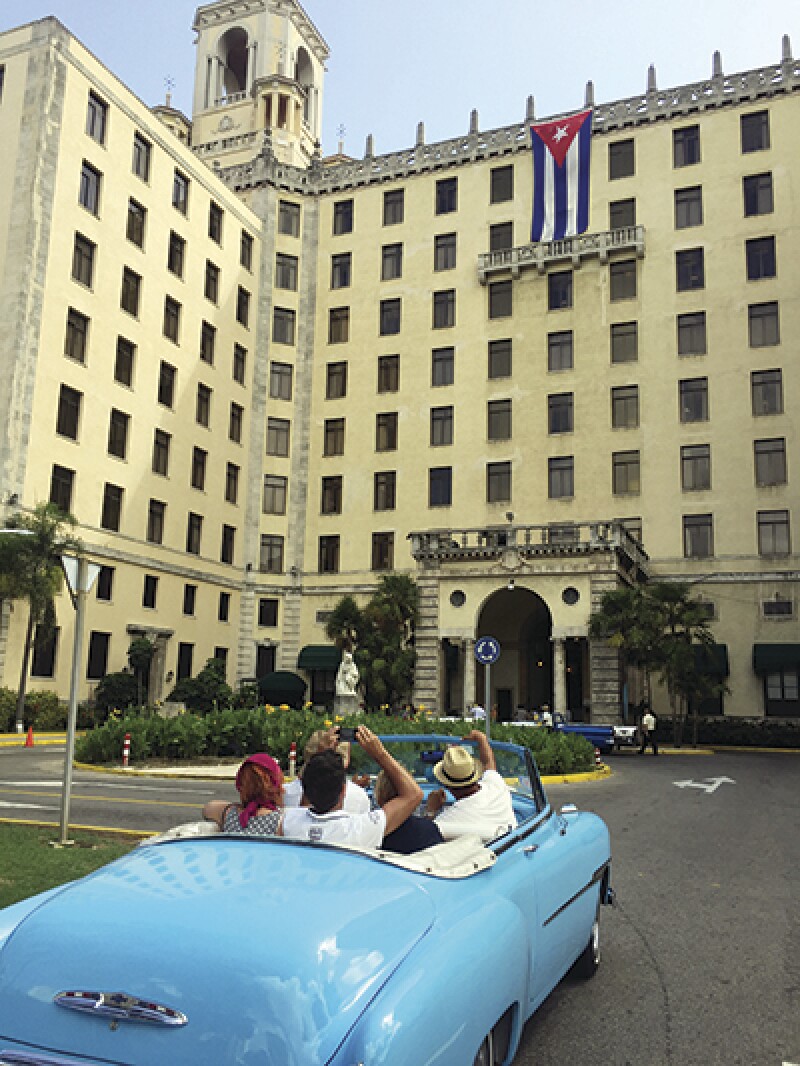
|
Illustration: Britt Spencer |
"We don’t have banks in Cuba!”
The taxi driver helming a splendid 1957 Pontiac Pathfinder clasico off the taxi rank at Havana’s Hotel Nacional snorts with scorn. Euromoney has asked him to drive us to a rare meeting at the Banco Central de Cuba (BCC), one of his country’s most important institutions. But the cabbie neither knows what a central bank is, nor where his country’s own is located.
Euromoney tells him the address, in Havana’s crumbling old town, along what was once Cuba’s raffish version of Wall Street at a time when his car arrived on this famously feisty island. He knows the street, but that’s all. “Are you sure it’s a bank?” he asks.
It’s a reasonable question. Fidel Castro’s communist command economy advantages its ruling military elite but pays most of its workers around $25 to $30 a month. Though five years into an erratic embrace of free-market reforms of their sclerotic Soviet-styled economy, most Cubans don’t yet have much call – or money – for banking services.

|
Tourists outside the Hotel Nacional, the main |
The cabbie is wrong, but he’s kind of right too.
